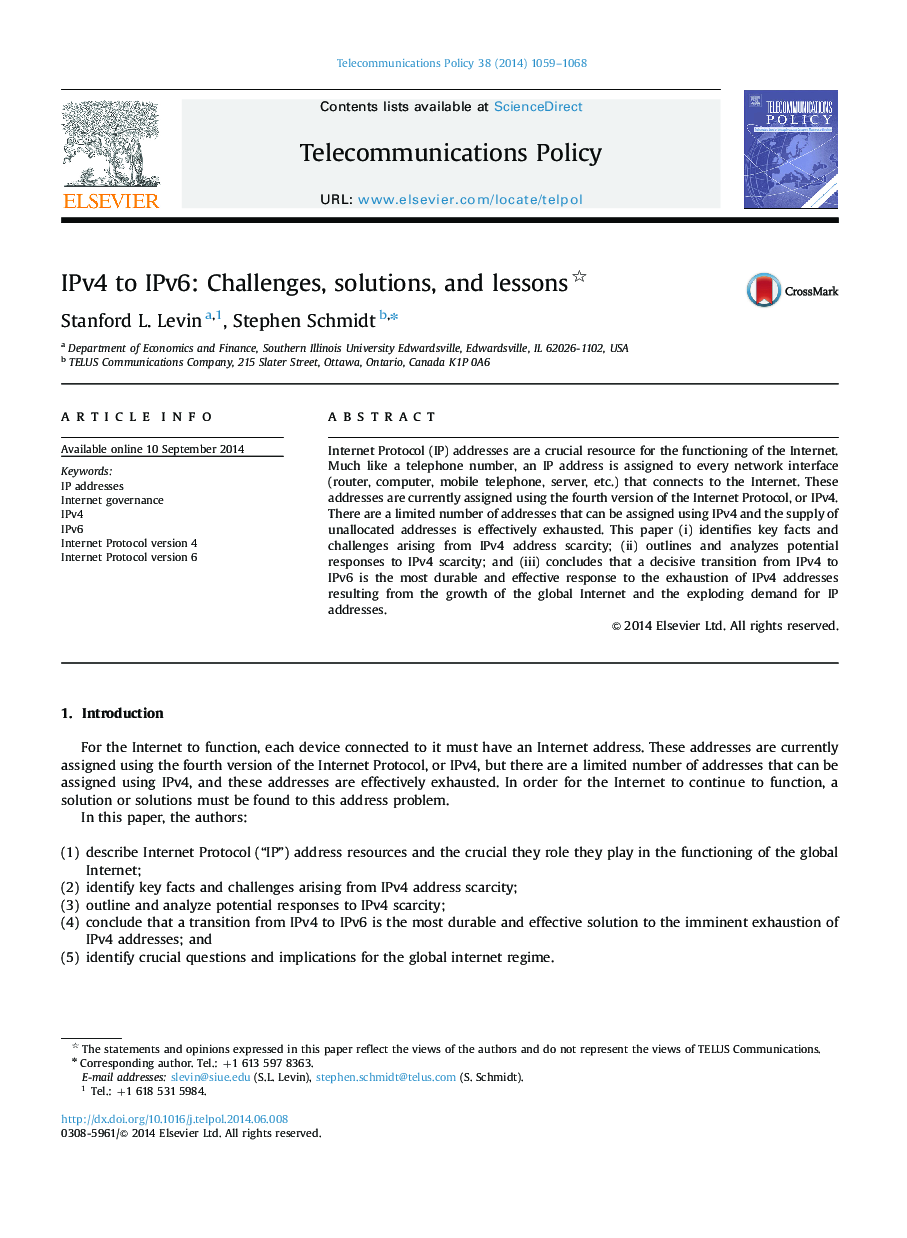| Article ID | Journal | Published Year | Pages | File Type |
|---|---|---|---|---|
| 556480 | Telecommunications Policy | 2014 | 10 Pages |
•Internet Protocol (IP) addresses are crucial to the functioning of the Internet.•The supply of unallocated IPv4 addresses is effectively exhausted.•A decisive transition from IPv4 to IPv6 will be the most effective response.•IPv4 exhaustion highlights major limitations of the current Internet governance regime.•A wider role for markets will drive more efficient use and allocation of IP addresses.
Internet Protocol (IP) addresses are a crucial resource for the functioning of the Internet. Much like a telephone number, an IP address is assigned to every network interface (router, computer, mobile telephone, server, etc.) that connects to the Internet. These addresses are currently assigned using the fourth version of the Internet Protocol, or IPv4. There are a limited number of addresses that can be assigned using IPv4 and the supply of unallocated addresses is effectively exhausted. This paper (i) identifies key facts and challenges arising from IPv4 address scarcity; (ii) outlines and analyzes potential responses to IPv4 scarcity; and (iii) concludes that a decisive transition from IPv4 to IPv6 is the most durable and effective response to the exhaustion of IPv4 addresses resulting from the growth of the global Internet and the exploding demand for IP addresses.
